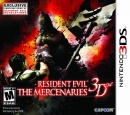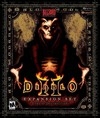Reasonable, it is easy to fall into the narrative trap in video game storytelling. There are and have been whole genres of games that live in the narrative world.
Heavy Rain is a poor example when talking about storytelling in games because it isn't really a game. Heavy Rain is, as they say, interactive fiction. Some people say this is new but it isn't. The precursors to this type of game are the text story games. For those of you that have never played a Zork "game", they were simply interactive fiction. You had limited control but essentially you were just unlocking a story by properly exploring, collecting items, and using them. Now, Heavy Rain is certainly not a dungeon exploration game, but it is a game with a ridged story that you explore though limited controls. The "gameplay" elements are just like the old "examine desk", "talk to man" of the old text games but now much of this is handled more real time with quicktime events taking the place of text decisions.
None of this is bad, in fact, I loved the old Infocomm games. If I stop thinking of Heavy Rain as a game, I'll probably enjoy it too (since I think quicktime events are the bane of gaming). But, to get back to the point here, as these interactive mediums evolve, be careful how you do your comparisons. ME2 and Heavy Rain comparisons fall apart quickly. ME2 is operating in game RPG space where game play elements are still very important and story must be worked in and Heavy Rain is a story with some limited choices to make the experience somewhat customized to the viewer.
When I look at Heavy Rain, I think, if I considered it as a game, it would be a very shitty game - crappy controls, quicktime events out the ass, etc. (kinda like being forced to play Simon Says in order for the DVD player to keep working). Now, if I take it as interactive fiction, like the old text games, then it might be very good. Taken that way, I am playing a story in which I can cause the actors to do a few things differently along the way and feel that I brought about one of the several ending options. Like Dragon's Lair with more options, and more endings or if Choose-Your-Own-Adventure books were a few hundred pages thicker to allow for 20 extra endings. Still not really a game, but an expanded form of an old concept.
So, when talking about storytelling in games, I think Heavy Rain should be left out.
I give this thread a 9.6.
Thank god for the disable signatures option.

























































